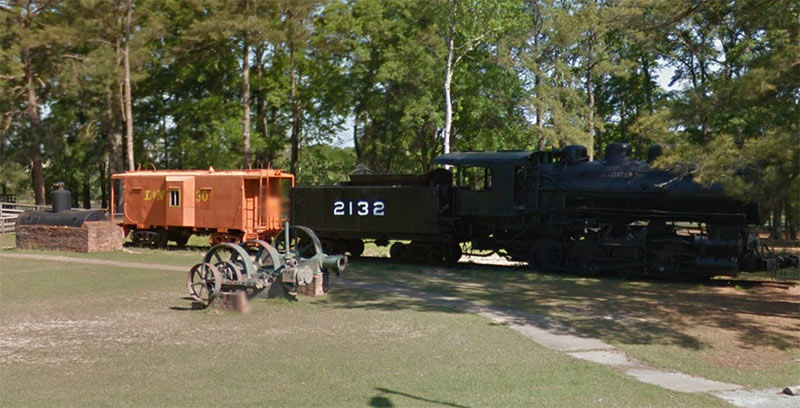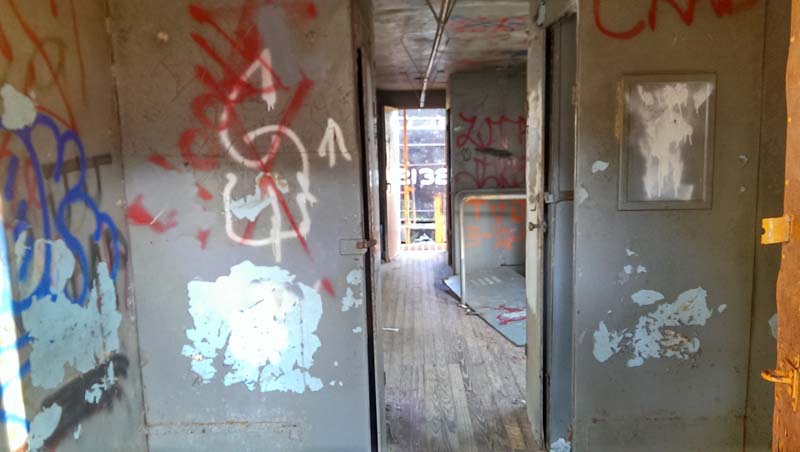

Bainbridge Mayor Edward Reynolds and more than one member of the Bainbridge City Council cited the potential high costs of taking care of the historic train engine in the Earle May Boat Basin as the primary reason they were willing to let it go.
The City Council voted 5-1, with Councilwoman Roslyn Palmer voting no, to allow the train to be moved to Corbin, Kentucky, where tourism officials plan to restore it and feature it in a railroad museum. Corbin was once a main railroad hub for trains carrying coal out of the Appalachian mountains, and the steam engine in Bainbridge’s Boat Basin was once used by the Louisville and Nashville Railroad in the Kentucky town.
However, while voting to let Corbin have the train engine, there was also some reluctance that it couldn’t be kept here in Bainbridge.
Councilwoman Palmer, who said she has opposed moving the train since she first heard of the proposal, called the train engine a valuable community asset.
“I hope that somewhere down the road, we won’t be regretting letting the train be moved, because we can never get it back,” Palmer said.

Palmer’s husband, Jack, was director of Bainbridge Leisure Services in 1979 when Gulf Power donated the train to the City of Bainbridge. Engine 2132, which is a smaller engine used to switch rail cars between different locomotives, was sitting abandoned in Sneads, Fla., and was at risk of being scrapped for its iron when Bainbridge leaders decided to save it.
Mr. Palmer said he recalls taking a group of seasonal parks and recreation workers down to Sneads to investigate how the engine might be moved. He said the engine’s wheels were buried in three feet of dirt that had accumulated over the years, as diesel engines replaced coal-powered engines.
Councilwoman Glennie Bench lamented letting the train go but said the Bainbridge city government didn’t have the financial resources to keep the train from deteriorating further.

“We did save the train, 30 years ago, and we should be proud of that,” Bench said.
However, Bench noted that Corbin’s tourism officials have estimated they will spend between $100,000 to $150,000 restoring the train to a good, historic condition. Palmer countered by saying she believes the train wouldn’t need to be restored to “like-new” condition to be valuable to Bainbridge. Palmer and other supporters have pointed to an old train engine that’s been kept up in good condition in Sylvester, Ga. That train has a fence to keep visitors off the train and a shed over it to protect it from the elements.
Even if the city didn’t restore it to its historically significant condition, whoever has the train will have to pay to clean up asbestos found on the train in a Jan. 29 inspection.
Poppell Environmental Services of Bainbridge found two types of asbestos in the train’s engine compartment. Both types were at high enough levels that federal environmental officials would require the engine to be cleaned up, as it could be judged a serious health risk not to do so, Poppell wrote.
“My current understanding is that if we were to keep the train, we would probably have to put a fence around both the caboose and the engine,” Mayor Reynolds said. “I think what citizens liked about the train was being able to get up on it…I’m not sure we could abate the asbestos to the point that we’d feel comfortable allowing people to climb up on it.”
Others who have seen the inside of the engine compartment say its metal floor has rusted completely through in some places.

Rev. David McIntosh, who was a minister in Bainbridge when Engine 2132 was moved in 1980, was part of the group who helped bring the train engine to Bainbridge in 1980. McIntosh, who is now a transportation historian in Brunswick, Maryland, admitted that while Engine 2132 never passed through Bainbridge during its working life, it still serves of a symbol of the railroad’s importance to Decatur County, GA.
“The train helps tell Bainbridge’s story as a crossroads of road, railroad and water,” McIntosh said.
Citizen Shirley Florence argued for keeping the train. She said she’s been going to the Boat Basin to see the train since she was a child, and said it has been a point of interest to multiple generations.
“[The train] is the first place the kids want to go when they visit the Boat Basin,” Florence said. “It’s also a good place to take relatives when they are in town visiting…what would we benefit from letting it go?”
Ted Snell said he and his wife had recently visited the train and caboose.
“The engine is deteriorating and I don’t think taxpayers want to pay $100,000 or more to restore it,” Snell said. “I admire the people here who want to save the engine, but Corbin has the means to save it and a museum to put it in.”

Snell also referenced the “sister city” relationship that Corbin tourism officials promised they would create between Bainbridge and Corbin. Snell said this could lead to people from Kentucky visiting Bainbridge on their way to a Gulf Coast vacation, as a result of the cross-marketing between the two cities.
But for Councilman Luther Conyers, the marketing is OK, but he wants something tangible and significant in return from Corbin, in exchange for Bainbridge giving up what it has invested in the train.
Conyers said that didn’t necessarily have to be another train engine, as Corbin had researched getting a replacement diesel engine to go to the Boat Basin. That was questioned at a previous meeting–Corbin has estimated it will cost $75,000 to $100,000 to move Engine 2132 to Kentucky. Corbin has the means to pay that cost of moving Engine 2132 because of a Kentucky tourism grant it received, however, they weren’t sure how much of the cost they could bear to move a train engine to Bainbridge.
“I would like for us to ask [the Corbin tourism official] again to make us their very best offer,” Conyers said. “Then let’s take whatever that is and build on it, and make it something for us to enjoy here in Bainbridge.”



I found this after planning to travel here to explore the history…
Very SAD that this town which is very large compared to toens like Blountstown, FL … Are getting rid of their historical items… Blountstown FL bought their train back decades ago and maintains it through alng with a train museum…
Seem from this outsiders view someone did not have a leg sighted view of what was good for the community. As a retired tourist I can tell you, I ‘Drive Thru” towns like yours that do not preserve the past they are rooted on.